Related Research Articles

Lancaster is a town in Worcester County, Massachusetts, United States. Incorporated in 1653, Lancaster is the oldest town in Worcester County. As of the 2020 census, the town population was 8,441.

Ipswich is a coastal town in Essex County, Massachusetts, United States. The population was 13,785 at the 2020 census. Home to Willowdale State Forest and Sandy Point State Reservation, Ipswich includes the southern part of Plum Island. A residential community with a vibrant tourism industry, the town is famous for its clams, celebrated annually at the Ipswich Chowderfest, and for Crane Beach, a barrier beach near the Crane estate. Ipswich was incorporated as a town in 1634.

John Eliot was a Puritan missionary to the American Indians who some called "the apostle to the Indians" and the founder of Roxbury Latin School in the Massachusetts Bay Colony in 1645. In 1660 he completed the enormous task of translating the Eliot Indian Bible into the Massachusett Indian language, producing more than two thousand completed copies.

Charles Francis Adams Sr. was an American historical editor, writer, politician, and diplomat. As United States Minister to the United Kingdom during the American Civil War, Adams was crucial to Union efforts to prevent British recognition of the Confederate States of America and maintain European neutrality to the utmost extent. Adams also featured in national and state politics before and after the Civil War.

Arthur Delevan Gilman was an American architect, designer of many Boston neighborhoods, and member of the American Institute of Architects.

Nathan Appleton was an American merchant and politician and a member of the group of entrepreneurs known as "The Boston Associates".
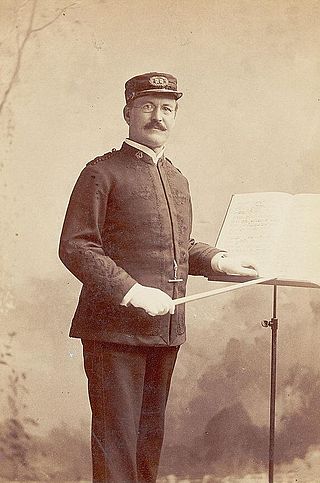
Patrick Sarsfield Gilmore was an Irish-born American composer and military bandmaster who lived and worked in the United States after 1848. While serving in the Union Army during the U.S. Civil War, Gilmore wrote the lyrics to the song "When Johnny Comes Marching Home". This was published under the pseudonym Louis Lambert in September 1863.
Events from the year 1827 in the United States.
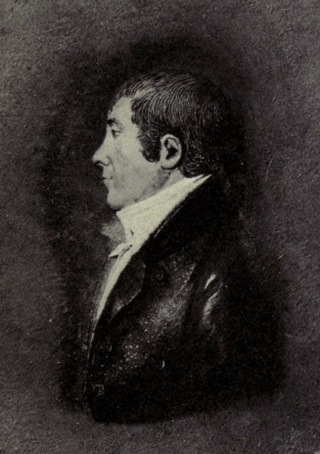
Oliver Holden was an American composer and compiler of hymns.
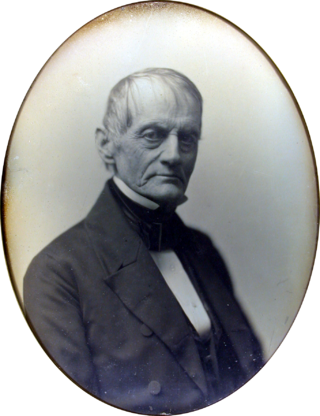
William Appleton was an American businessman and politician from Massachusetts. He was a trader, shipowner, and banker, and served as a U.S. representative from Massachusetts from 1851 to 1855, and again from 1861 to 1862.

Samuel Atkins Eliot was a member of the notable Eliot family of Boston, Massachusetts, who served in political positions at the local, state and national levels.
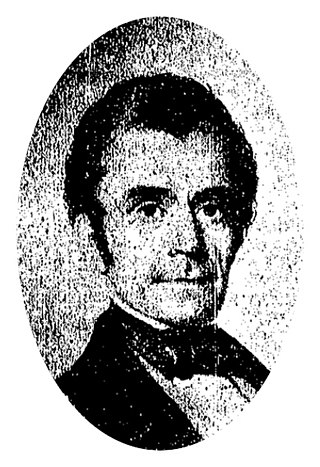
Jacob Bailey Moore was an American journalist, printer, newspaper editor and historical writer. He also was elected to the New Hampshire General Court and was deputy postmaster of San Francisco.

John Phillips was an American politician, serving as the first mayor of Boston, Massachusetts, from 1822 to 1823. He was the father of abolitionist Wendell Phillips.

Charles Crozat Converse was an American attorney who also worked as a composer of church songs. He is notable for setting to music the words of Joseph Scriven to become the hymn "What a Friend We Have in Jesus". Converse published an arrangement of "The Death of Minnehaha", with words by Henry Wadsworth Longfellow.
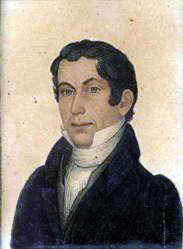
Timothy Fuller was a U.S. Representative from Massachusetts.

Nahum Mitchell was a U.S. Representative from Massachusetts.
Elias Mann was one of the first American composers. He was one of the men responsible for founding the Massachusetts Musical Society

Emily Appleton was an American philanthropist and animal welfare activist from Boston who provided financial support for the foundation of the Massachusetts Society for the Prevention of Cruelty to Animals in 1868.
Reverend John Tufts was an early American music educator.

Samuel Forster Haven was an American archeologist and anthropologist.